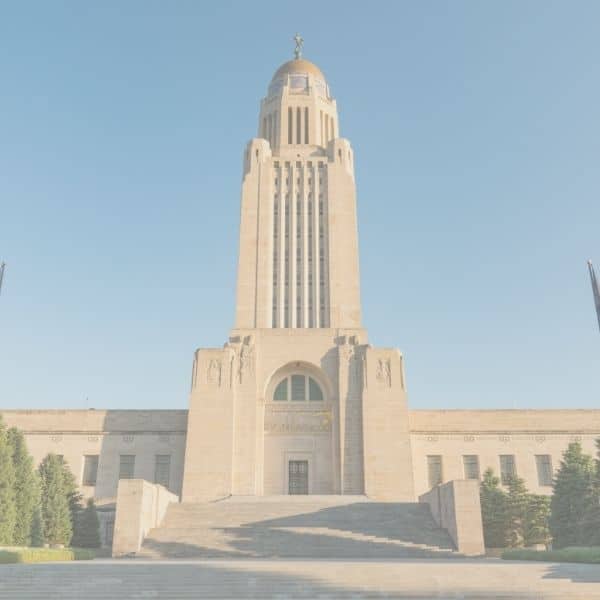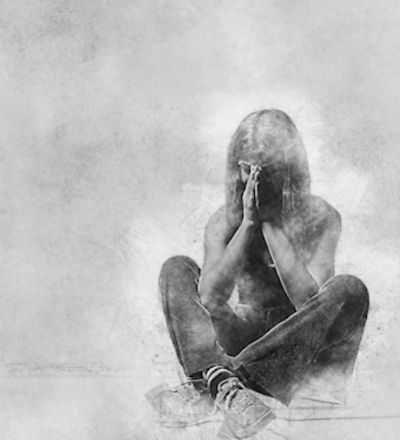Donate
These reports represent hundreds of hours of research by the Unsilenced Investigative Research Team. As you review this report, please consider donating. Your contribution will help us continue our work advocating for survivors and youth. Every donation makes an impact, no matter the size. Thank you for your support!
Completed by:
The Unsilenced Investigative Research Team
The Troubled Teen Industry in Nebraska
Impact Report
2022
Impact Report
2022
Introduction
The ‘troubled teen’ industry is a network of residential programs that claim to provide treatment for the behavioral and developmental needs of youth. The industry’s lack of transparency and accountability has led to widespread abuse of youth, resulting in hospitalizations, prolonged trauma and death.
Today, there are an estimated 120,000 – 200,000 minors in residential programs across the United States. These youth are placed each year by state child welfare agencies, juvenile justice courts, mental health providers, refugee resettlement agencies, school districts’ individualized education programs, and by parents.
Many of these youth have trauma histories, which are only exacerbated by being removed from their communities and institutionalized. Youth with lived experience describe these programs as being carceral, harsh, and abusive.
An estimated $23 billion dollars of public funds annually are used to place youth in residential programs. Daily rates for residential treatment ranges from $250-$800, costing up to $292,000 per year, per child.
It is overwhelmingly clear that our communities and agencies are over-relying on residential placements that are negatively impacting the youth they serve.
Introduction
The ‘troubled teen’ industry is a network of residential programs that claim to provide treatment for the behavioral and developmental needs of youth. The industry’s lack of transparency and accountability has led to widespread abuse of youth, resulting in hospitalizations, prolonged trauma and death.
Today, there are an estimated 120,000 – 200,000 minors in residential programs across the United States. These youth are placed each year by state child welfare agencies, juvenile justice courts, mental health providers, refugee resettlement agencies, school districts’ individualized education programs, and by parents.
Many of these youth have trauma histories, which are only exacerbated by being removed from their communities and institutionalized. Youth with lived experience describe these programs as being carceral, harsh, and abusive.
An estimated $23 billion dollars of public funds annually are used to place youth in residential programs. Daily rates for residential treatment ranges from $250-$800, costing up to $292,000 per year, per child.
It is overwhelmingly clear that our communities and agencies are over-relying on residential placements that are negatively impacting the youth they serve.

Nebraska Statistics
$500
Per Day Per Child
Nebraska pays facilities on average and advocates report that the state spends up to $800 per day for children with complex needs.
1,633
Children Under 12
placed in residential facilities through Child Welfare programs in 2019
309
Juvenile Justice Youth
placed in residential facilities through Juvenile Justice programs in 2019
- 180 minors were committed to a residential facility as part of a court ordered disposition
- 123 minors were detained in a residential facility while awaiting a court hearing, adjudication, disposition or placement elsewhere

Nebraska Statistics
$500
Per Day Per Child
Nebraska pays facilities on average and advocates report that the state spends up to $800 per day for children with complex needs.
1,633
Children Under 12
placed in residential facilities through Child Welfare programs in 2019
309
Juvenile Justice Youth
placed in residential facilities through Juvenile Justice programs in 2019
- 180 minors were committed to a residential facility as part of a court ordered disposition
- 123 minors were detained in a residential facility while awaiting a court hearing, adjudication, disposition or placement elsewhere
- 0 minors were voluntarily admitted to a residential facility in lieu of adjudication as part of a diversion agreement
An Nebraska Problem
A team of researchers reviewed 230 studies of residential treatment facilities from around the nation and found there was no evidence that they were effective.
In 2019, Nebraska was home to 476,074 minors, including 3,434 minors in foster care.
Nebraska has 43 Licensed Residential Facilities.
The facility types with the highest capacity for housing minors in Nebraska are:
- 18 Residential child-caring agency: Capacity for 943 minors
- 19 Psychiatric Residential Treatment Facility (PRTF)
Nebraska sends minors out-of-state despite evidence indicating youth are best served in their communities
- Nebraska sent between 39 and 74 such youths to other states every year from 2015 through 2021.
- 2/3 were on juvenile probation,
- 1/3 were in the child welfare system.
- They were sent as far away as Tennessee and South Carolina and typically spent four to six months in those out-of-state facilities
- The state paid $9.1 million for the care of such teens in 2019

Illustration by Spencer Holladay, USA Today Network; Getty Images
“Many kids don’t get help. Others never needed institutional care in the first place.”
Fred Clasen-Kelly, Amritpal Kaur Sandhu-Longoria, Rachel Berry, Brad Zinn, Kristen Johnson, Brian Gordon
The Fayetteville Observer
Current Oversight
Division of Public Health of the Department of Health and Human Services
Residential child-caring agencies shall not be established, operated, or maintained in this state without first obtaining a license issued by the department under the Children’s Residential Facilities and Placing Licensure Act 391 NAC 7
- Residential child-caring agency: An organization which is incorporated for the purpose of providing care for children and youth in buildings maintained by the organization for that purpose.
- Residential Child Caring Agencies
- Emergency Shelter Care
- Group Home Care
- Psychiatric Residential Treatment Facility (PRTF) provides inpatient psychiatric services to individuals under the age of 19. A PRTF will provide the inpatient psychiatric services under the direction of a physician, will be accredited and will comply with all the requirements of applicable state and federal regulations.
The Department of Health & Human Services (DHHS) directly operates two public 2 psychiatric hospitals treating a variety of issues. These facilities must be accredited by The Joint Commission & will comply with all the requirements of applicable state and federal regulations.
- 2 Psychiatric Hospitals
- Lincoln Regional Center – Male adolescents sex offenders
- a 250 bed, Joint Commission-accredited state psychiatric hospital, is operated by the Nebraska Department of Health and Human Services.
- Hastings Regional Center – Adolescent Residential Substance Abuse Treatment (Boys)
- The Hastings Juvenile Chemical Dependency Program (HJCDP) provides residential substance abuse treatment for adolescent males from the ages of 13 to 18 years.
- Lincoln Regional Center – Male adolescents sex offenders
The Department of Health & Human Services (DHHS) oversees Detention and Juvenile Facilities treating a variety of issues. These facilities will be accredited by the American Correctional Association (ACA).
- 4 Detention and juvenile facilities means an institution operated by a political subdivision or political subdivisions for the secure detention and treatment of persons younger than eighteen years of age, including persons under the jurisdiction of a juvenile court, 83-4,125 (2) 2020 Report
- Lincoln Facility
- Youth Rehabilitation & Treatment Center – Kearney
- Youth Rehabilitation & Treatment Center – Hastings
- Whitehall
Nebraska requires Residential Facilities serving minors to obtain a license but does not provide adequate oversight
Department of Health and Human Services Children and Family Services Caseload Status:
- IA = Initial Assessment case only
- IA & Ongoing = Initial Assessment and Ongoing cases
- Ongoing Only = Ongoing cases only
March 2022
| IA Only | |||
| Service Area | Staff | Staff In Compliance | Percent In Compliance |
| Central | 9 | 9 | 100% |
| Eastern | 25 | 17 | 68% |
| Northern | 7 | 5 | 71% |
| Southeast | 19 | 14 | 74% |
| Western | 9 | 9 | 100% |
| State Total | 70 | 55 | 78% |
| IA & Ongoing | |||
| Central | 20 | 18 | 90% |
| Eastern | NA | NA | NA |
| Northern | 26 | 16 | 62% |
| Southeast | 37 | 24 | 65% |
| Western | 25 | 13 | 52% |
| State Total | 109 | 72 | 66% |
| Ongoing Only | |||
| Central | 29 | 24 | 82% |
| Eastern | 101 | 45 | 45% |
| Northern | 26 | 14 | 54% |
| Southeast | 41 | 26 | 63% |
| Western | 22 | 18 | 82% |
| State Total | 219 | 127 | 58% |
| Total Staff | |||
| Central | 58 | 51 | 88% |
| Eastern | 126 | 62 | 49% |
| Northern | 60 | 37 | 49% |
| Southeast | 97 | 64 | 66% |
| Western | 54 | 41 | 72% |
| State | 397 | 253 | 64% |
Abuse and Neglect
Youth residing in Residential Facilities in Nebraska are at-risk for abuse, neglect and long-term harm.
Minors residing in Residential Facilities in Nebraska are at-risk for abuse, neglect and long-term harm
Nebraska determined that at least 3 Group Home and Residential Facility Staff Members and 10 Foster Parents caused or knowingly allowed the maltreatment of a child in 2020
Special Report: Examining Missingness among Children in Out-of-Home Care Placements in Nebraska
- Foster Home (relative or fictive/kinship) 38.39%
- Foster Home (non-relative) 28.17%
- Group Home 5.75%
- Institution 6.07%
- Supervised Independent Living 1.05%
- Trial Home Visit 9.48%
- Detention Facility 5.97%
- Near Permanency Placement 5.12%
Media Coverage
- Jan. 2012 Nebraska’s YRTC Voices for Children in Nebraska
- Dec. 11, 2019 Nebraska, emerging leader on moving child welfare upstream, subite Family First Plan The Imprint Kim Phagan-Hansel
- Jan. 12, 2020 Bill to address safety in Nebraska’s hidden foster care system KETV Omaha WOWT Julie Cornell
- Jun. 26, 2020 Nebraska couple sentenced for locking foster child in basement 1011 Now
- May 7, 2021 Two national groups to review youth services center and juvenile detention Lincoln Journal Star Margaret Reist
- Jul. 26, 2021 Boarding School Body Count Sahan Journal Sasha Brown
- Nov. 4, 2021 Students make emotional visit to former Indian boarding school Nebraska Today Deann Gayman
- Nov. 14, 2021 102 died at Native American boarding school in Nebraska Associated Press KOLN
- Nov. 16, 2021 From typhoid to boxing deaths: Inside a government-run Native American assimilation school Independent Sheila Flynn
- Oct. 20, 2021 ‘Frankly, I’m scared to death’: Neighbors worried about new youth treatment center News Now Omaha Jessika Eidson
- Dec 2021 ‘This system is broken’: NAACP calls for state audit of Scott County juvenile justice system Quad City Times Tom Barton
- Feb. 2, 2022 Troubled Nebraska youth could return from out-of-state care with proposed state facility Omaha World Herald Martha Stoddard
- Mar. 13, 2022 Nebraska lawmakers officially recognize survivors, descendants of Genoa Indian School Omaha World Herald Jessica Wade
- Mar. 31, 2022 Avera Health Opens Expanded Behavioral Health Services to Meet Growing Needs Globe News Wire
- Apr. 13, 2022 Nebraska lawmakers pass bill that ends privatization of child welfare 6 News on Your Side Ashley Richardson
Additional Information
Unsilenced Program Database: Nebraska Programs
Contact: info@unsilenced.org
The information provided within UnSilenced.org is for general informational purposes only. All information is provided in good faith. However, we do not warrant, endorse, guarantee, or assume responsibility for the accuracy or reliability of any information offered by third-party posters, testimonials, comments, or submissions. Most information posted reflects the opinion of the writer and does not directly reflect the views, or positions of the owners of UnSilenced.org
Read More
